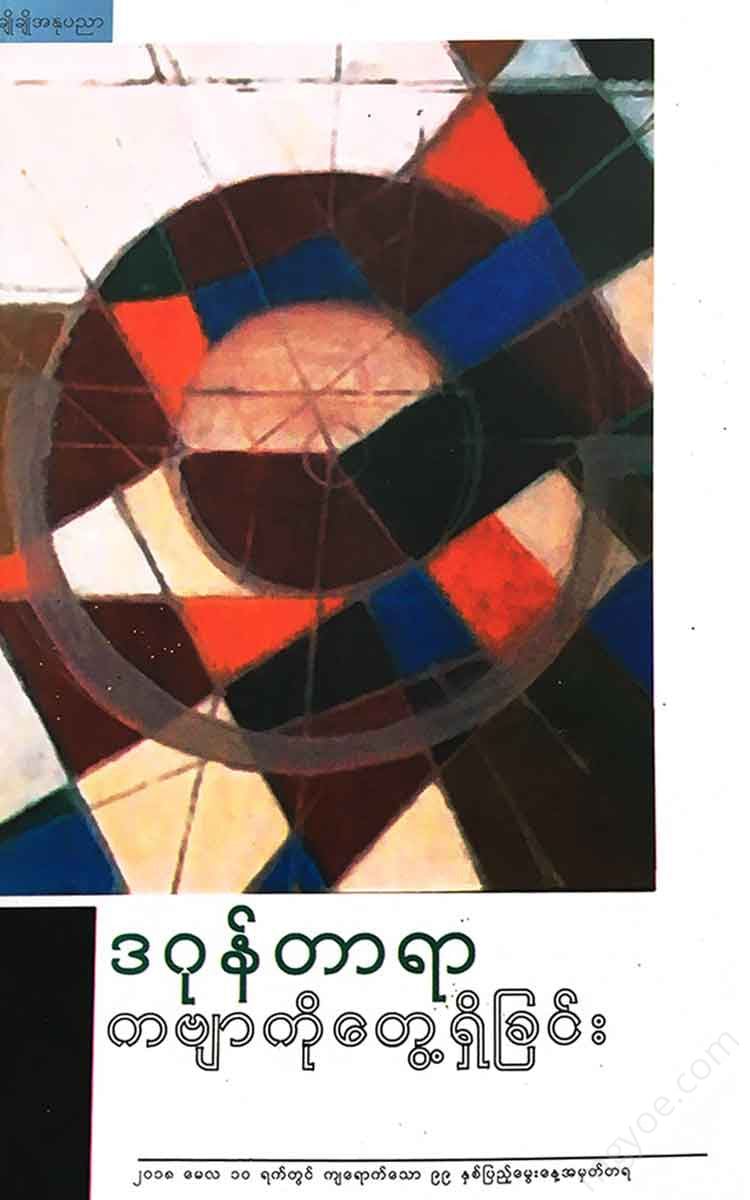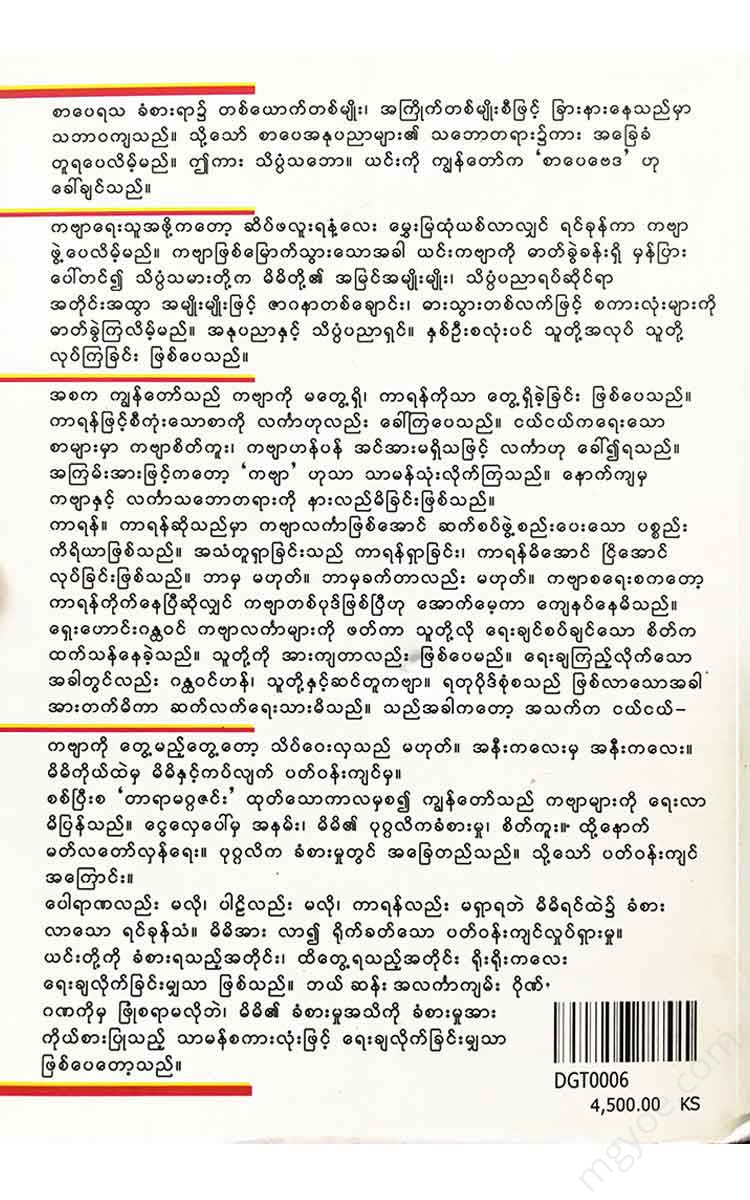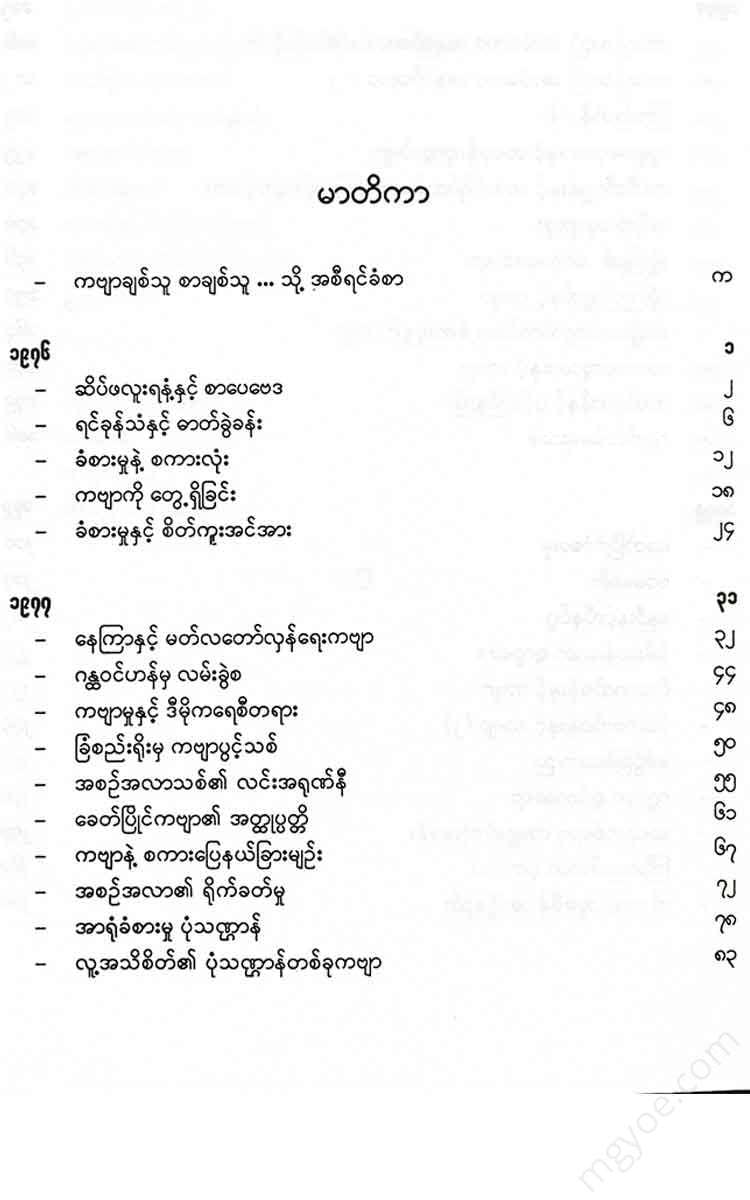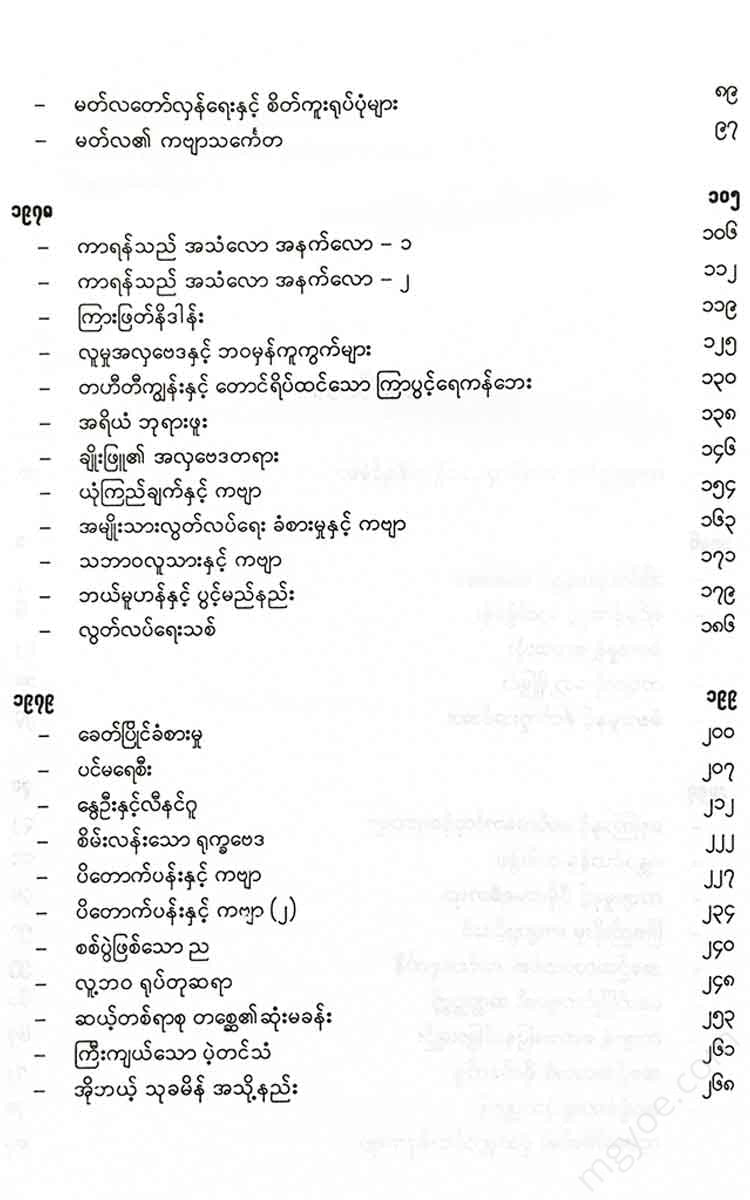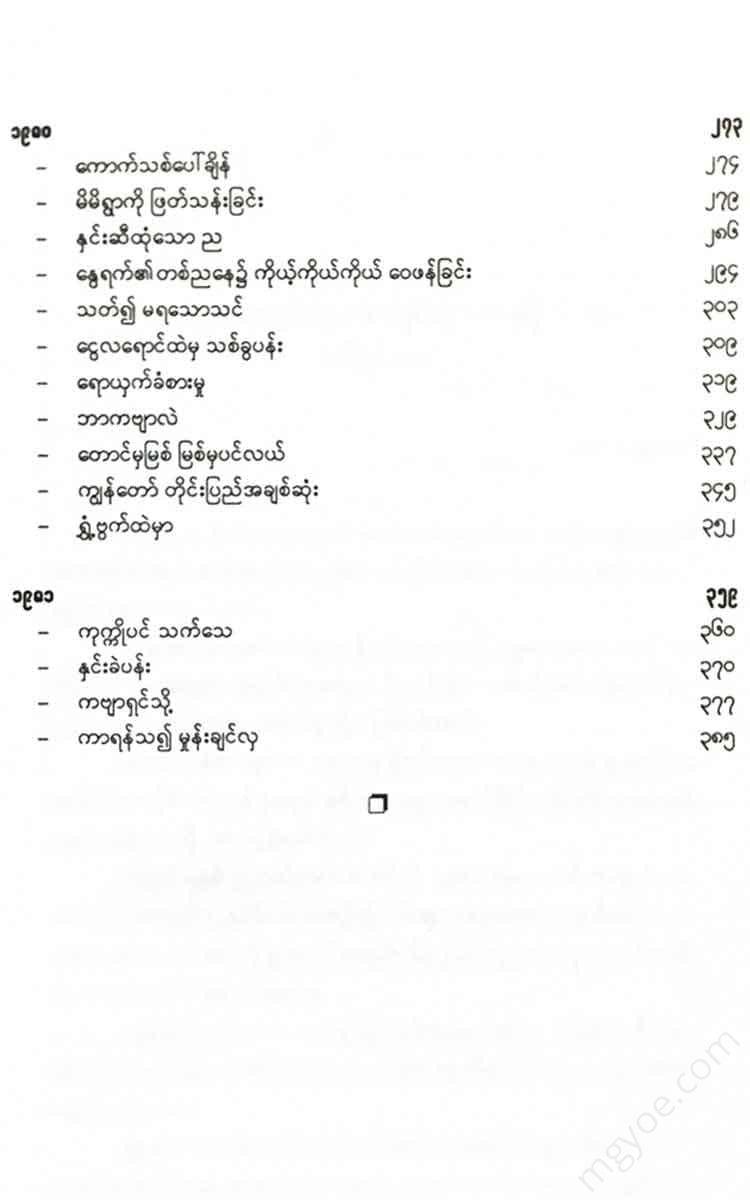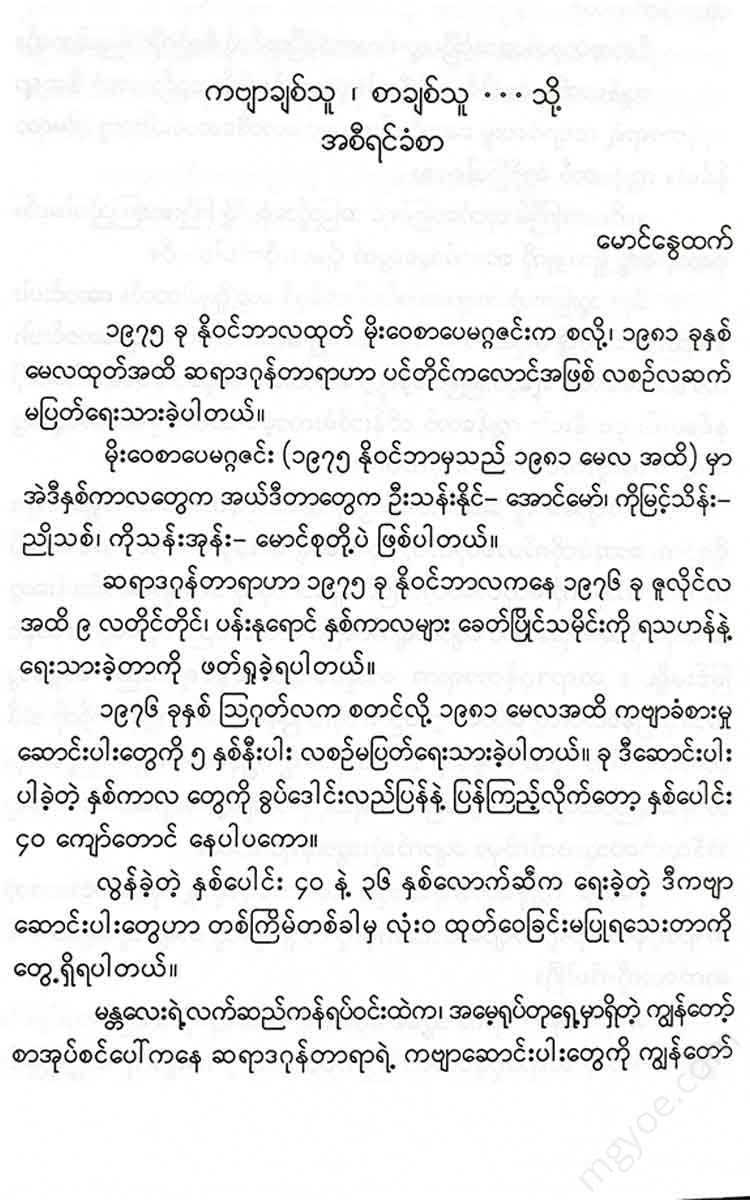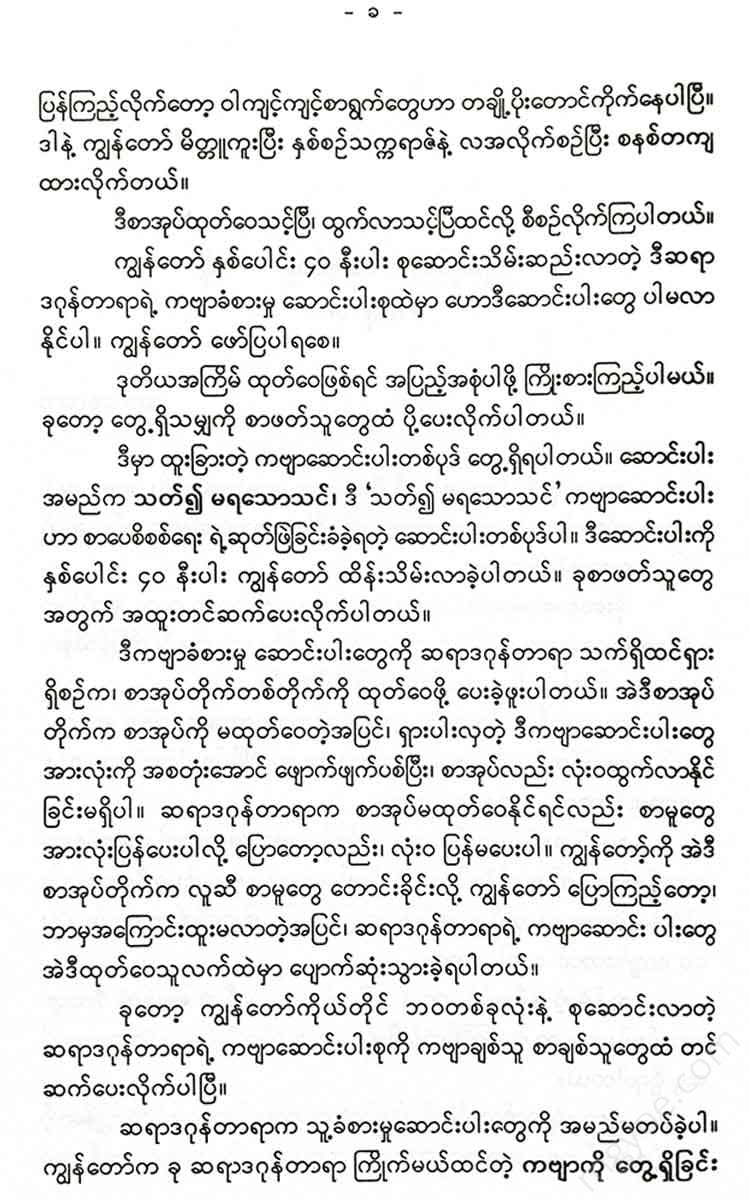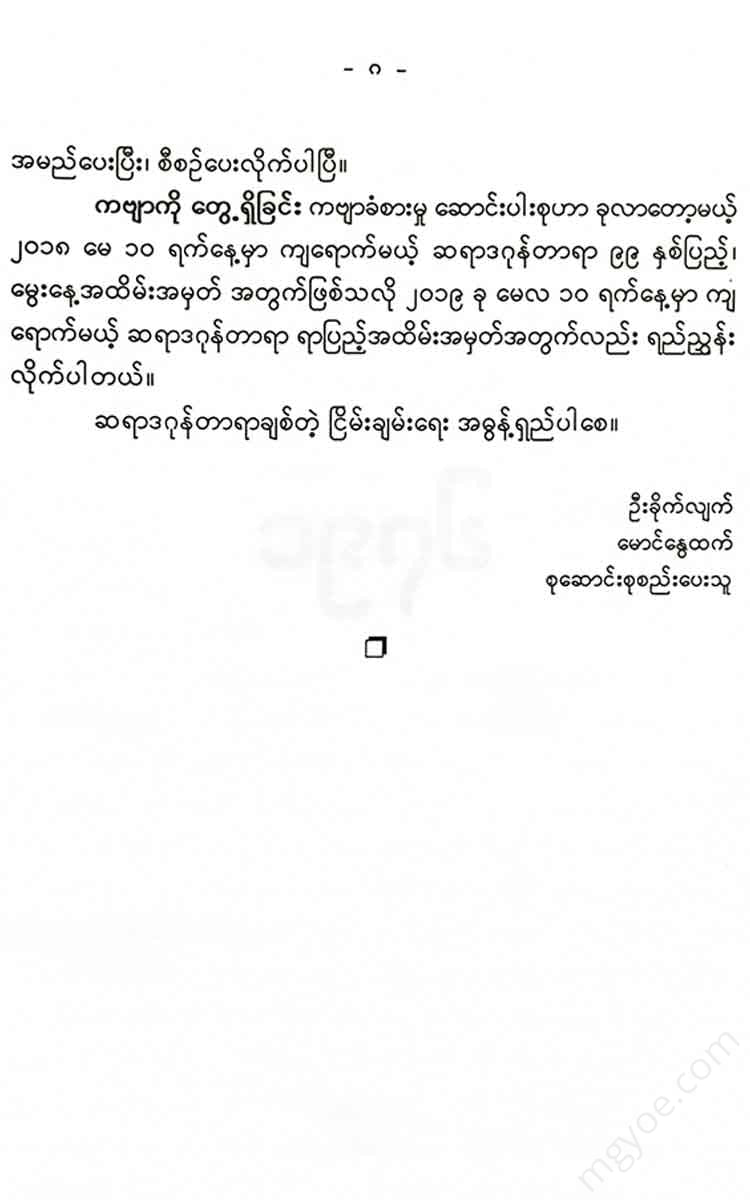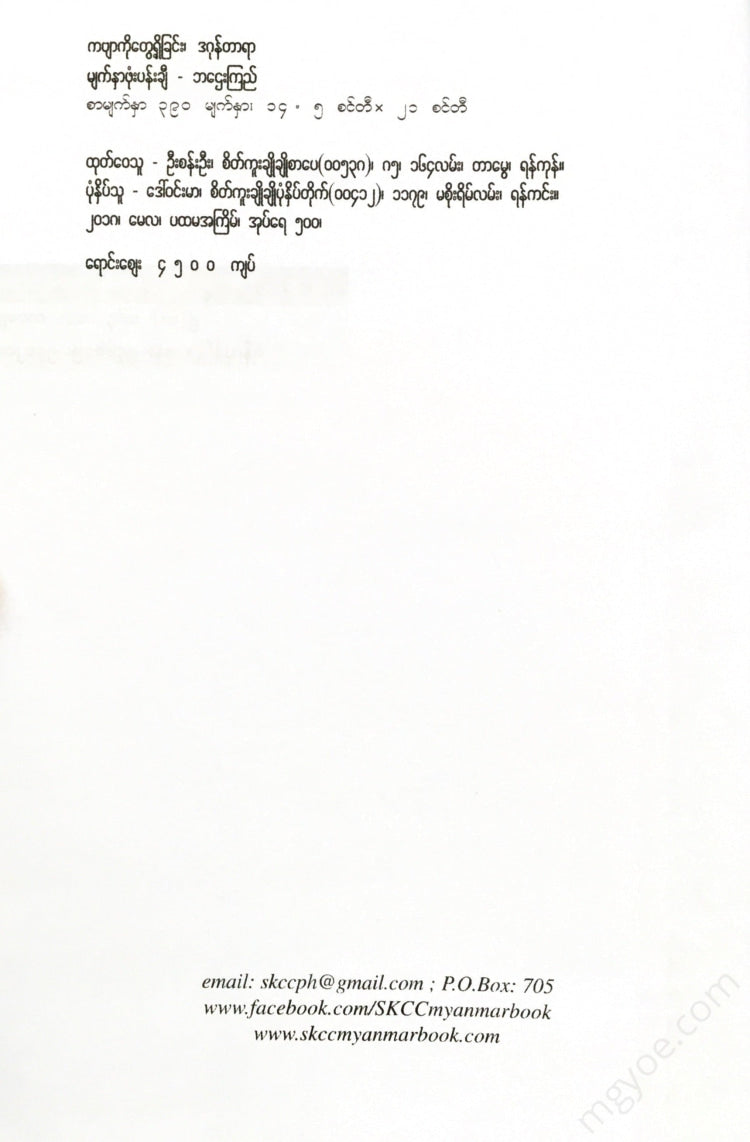စိတ်ကူးချိုချိုစာပေ
Dagon Tara - Finding Poetry
Dagon Tara - Finding Poetry
Couldn't load pickup availability
Actually, the smell of the sea breeze started.
More than 12 years ago, the smell of sorghum wafted into the corner of my dormitory. When I came up after dinner. The surroundings were brick walls, iron posts, and wooden beams. But the purple hues of the twilight were fading between the pine trees and mango trees. The rows of sorghum trees on the distant village road were hazy. The sorghum flowers were drifting by. The smell of sorghum wafted away.
We called it “Literary Twilight.” Three or four people gather near the railing and talk about the stories, poems, and literary experiences they have read. After reading a novel or a poem, each person talks about their feelings. After talking, they criticize and analyze. They exchange opinions. If they like it, why? If they don’t, why? When it comes to poetry, they argue more. They look at the meaning of the words to the end. I became more interested in learning that each person experiences literature that is composed of small letters in a different way. Each person’s preferences are different, and their interpretations are not the same.
Why do people have different preferences, why do they feel differently, and why do they interpret things differently?
We are a little different in age. We are born in different environments. We have different experiences in literary studies. We have different lives and political eras.
Just look at the word “Syrup Flue Smell”. Those who have been with us for more than three years will probably remember the smell of Syrup Flue. It is impossible not to remember. The smell of Syrup Flue is associated with memorable times, special days and times in our lives. Then, when I wrote the smell of Syrup Flue in a poem, he also felt it. If someone else reads it, he will not feel it. He will not understand the symbolism of Syrup Flue Smell.
The smell of the sea breeze for everyone is different from the smell of the sea breeze for us. In fact, we have known the smell of the sea breeze since we were children. But it is not particularly memorable, nor is it pleasant. There may be people who like it. However, the smell of the sea breeze now is a smell associated with brick walls, iron pillars, and wooden beams. Then the word "sea breeze" will have a different effect on the writer. This is a feeling related to a specific life experience.
A poem. A poem written with a farm as its backdrop. Two readers. One is a city dweller, raised in the city. The other is a rural person who came to the city at a very young age. Both live on the outskirts of the city, near a slum. The urban person does not see any fault in this poem and likes it. The rural person points out a mistake. He criticizes the poet for not having any rural experience or farming experience. This is about class experience.
One likes Pali Puranas. He is a student of old Burmese literature. Another says that he does not understand Pali and Purana words well. This is the experience of studying literature. One is married, and his wife was pregnant when he was detained. He sent a photo of his child to prison. One is a young man. The other is a lover. Then, when reading romance novels, the feelings are different.
The senses are also different from each other. One person only sees the moon through the glass. Another person cannot distinguish the fragrance of a fragrance. Another person enjoys the sound of birdsong. Then, there is no difference in the extent to which they enjoy the beauty of literature.
In this way, we find ourselves enjoying literature with a certain kind of taste, and we smell the fragrance of the perfume. This is the nature of art. If only one kind of taste was the same, then literature would be a monotonous thing. It would be as if we only had to read one author.
It is natural that each person's taste in literature is different, depending on their preferences. However, the basic principles of literature and art are the same. This is the essence of science. I like to call it "literary science."
Years ago, I met readers. I heard their literary feelings. I heard the questions of literary lovers on the banks of the Duthawaddy River, Insein Library, Kye Mon Post Office, Cultural Hall, Brickyard Workers’ Quarter, the free education school near the railway tracks, the bamboo slats, the Shwe Maw Daw Myay, near the Phyu Sut Lu Garden, the verandah filled with the scent of eucalyptus, the shade of Poplar Forest, the roadside bakery, the Paung Laung Riverside Tent, the Sadhu Kyaung Precinct, the Pindaya Mountain Shade. I learned their literary feelings.
Then, I saw that young people were learning about the concepts related to literature. They were looking for and reading all the books they could find. Their interest was not small. However, there were still very few books related to the concepts of literature.
When studying such literary concepts, they are presented in literary terms. Literary fiction, literary fiction, realist literature. In fact, they are the same. However, some people think of them as different. Fictional literature, this is also not clarified in the definition. Fictional literature and fictional literature are mixed. Philosophy, aesthetics, the same. They are called differently. In this way, when the terms and terms are different, it is not easy to get confused. Literary concepts are also taken from Western dictionaries, and the translations of words are different and mixed. They are using Abhidhamma as philosophy. They are using Senanga strategy as strategy.
Literature is an art that is always innovative. Therefore, each person has a different taste and a different feeler. However, the basis of literature should not be different. The science that studies the nature of literature should be included in the science of “literary studies.” The feeling of literature is an art, and the study of how people feel about it and the reasons for it and the extraction of laws and principles is a science. Literary history, literary criticism, literary research, phonetics, which studies the sound of words, linguistics, which studies the nature of word structure, etc. are all literary sciences. I was thinking about literary studies while smelling the fragrance of the incense.
Moe Wai Magazine, August, 1976
